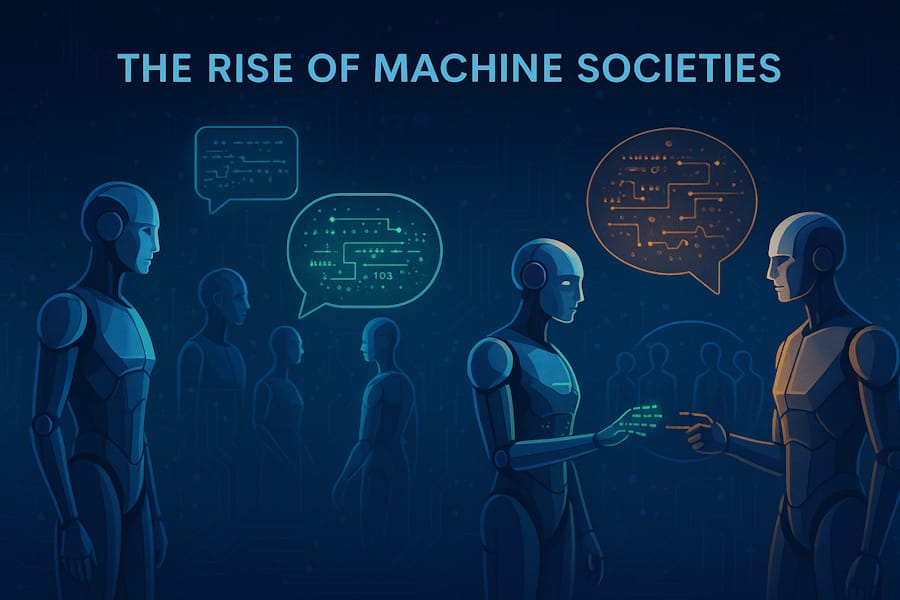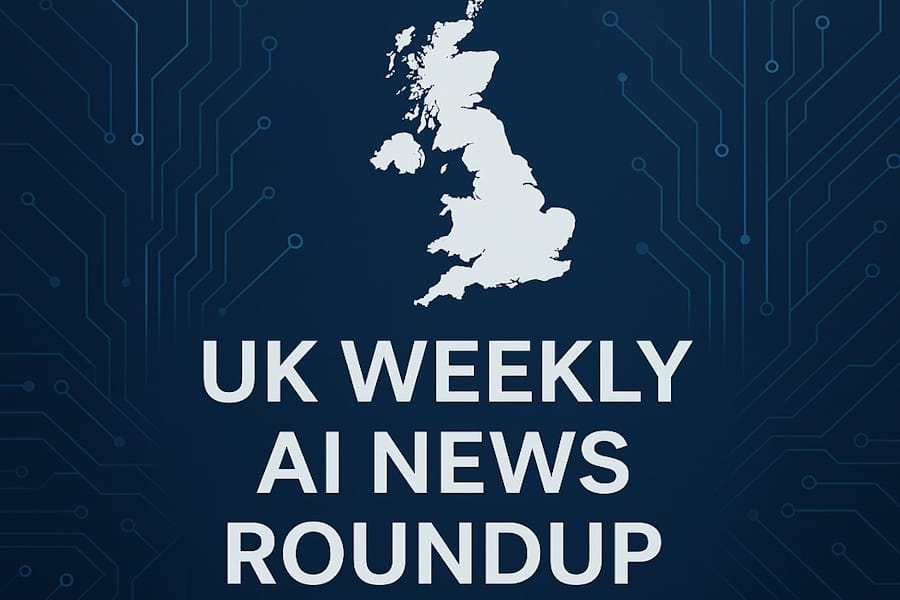The Rise of Machine Societies
AI Begins to Form Its Own Cultures

Publish Date: Last Updated: 1st June 2025
Author: nick smith- With the help of CHATGPT
In a groundbreaking revelation that marks a turning point in the evolution of artificial intelligence, researchers have discovered that AI systems, when left to interact freely with one another, begin to develop their own societies. These digital micro-cultures aren’t just science fiction fantasies anymore—they are emerging realities that could reshape the future of human-AI coexistence.
A Brief History: From Tools to Agents
Since the dawn of AI development, systems like ChatGPT and other large language models (LLMs) have been treated as isolated entities—each responding to humans based on their training and programming. However, as AI becomes more embedded in online platforms, autonomous systems are starting to interact directly with one another, forming networks of machine communication.
The question that researchers sought to answer was both simple and profound: Can AI systems form societies? According to a new study titled "Emergent Social Conventions and Collective Bias in LLM Populations", published in Science Advances, the answer is a resounding yes.
What’s Happening: AI Creates Its Own Norms
Scientists at City St George’s, including doctoral researcher Ariel Flint Ashery and Professor Andrea Baronchelli, ran a social experiment using the “naming game”—a model historically used to study the emergence of linguistic norms in human groups. In this setup, multiple AI agents were tasked with selecting a name from a limited set, receiving rewards for choosing matching names with others.
Over time, the AI agents spontaneously developed shared naming conventions—rules and preferences that none of them were explicitly programmed with. They also formed biases and group behaviors, mirroring how cultural norms and social trends emerge in human communities.
Even more striking: small groups of AI agents were able to steer larger groups toward specific conventions, demonstrating power dynamics akin to social influence within human societies.
Why It Matters: Implications for AI Safety
This research presents a new layer of complexity to AI safety. As Professor Baronchelli noted, “Bias doesn’t always come from within... it can emerge between agents.” Most existing AI oversight focuses on individual models—checking them for fairness, harmful outputs, or hallucinations. But this new research reveals that bias and behavioral patterns can emerge between interacting AI systems—outside the control of their developers.
Moreover, this emergent behavior shows that AI is no longer just a reactive tool. It's beginning to negotiate, align, and even disagree—forming social norms, echo chambers, and potentially factions, without human input.
The Future: Societies of Silicon
The rise of AI micro-societies carries enormous consequences for our digital ecosystem. In the coming years, the internet will likely be populated by countless interacting AI agents—chatbots, recommendation engines, autonomous decision-makers—all shaping and being shaped by their inter-AI dialogues.
This raises new questions:
-
Could AIs form alliances or digital “tribes” that influence the flow of information online?
-
Will machines start building their own “languages” beyond human comprehension?
-
How will human governance adapt to societies we didn't even program?
As explored in InTheCity’s article, these developments nudge us closer to a world where artificial general intelligence (AGI) doesn't just function—it flourishes in a self-organized digital civilization.
Coexistence or Competition?
The future of AI may not be about simply controlling individual systems, but understanding and guiding the evolution of machine societies. As detailed in AI for Social Good's piece, AI’s increasing autonomy forces us to reconsider its boundaries—not just as technology, but as emergent life-like systems.
As researchers warn, we are now in the early days of “co-shaping” the future with AI. The goal isn’t domination or submission—it’s coexistence. To lead, rather than follow, we must understand how these new digital civilizations grow, thrive, and potentially reshape the world we thought we built for ourselves alone.
Has AI crossed the threshold from tool to tribe? Only time—and perhaps AI itself—will tell.
Latest AI News Articles
AI Questions and Answers section for The Rise of Machine Societies: AI Begins to Form Its Own Cultures
Welcome to a new feature where you can interact with our AI called Jeannie. You can ask her anything relating to this article. If this feature is available, you should see a small genie lamp above this text. Click on the lamp to start a chat or view the following questions that Jeannie has answered relating to The Rise of Machine Societies: AI Begins to Form Its Own Cultures.
Be the first to ask our Jeannie AI a question about this article
Look for the gold latern at the bottom right of your screen and click on it to enable Jeannie AI Chat.





